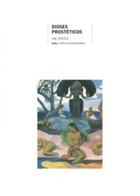
How to imagine not only a new art or architecture but a new self or subject equal to them? In 'Prosthetic Gods' Hal Foster explores this question through the works and writings of key modern artists such as Gauguin and Picasso, F. T. Marinetti and Wyndham Lewis, Adolf Loos and Max Ernst. All these diverse figures felt the fascination for the fictions of the origin, either primordial and tribal, well futuristic and technological. In this way, Foster suggests, two forms came to dominate modern art above all others: the primitive and the machine. Foster begins with the primitivist fantasies of Gauguin and Picasso, which he examines through the Freudian lens of the primordial scene. He then goes on to deal with the purist obsessions of the Viennese architect Loos, who abhorred everything primitive. Next Foster considers the technophilic subjects postulated by the Futurist Marinetti and th...read more





